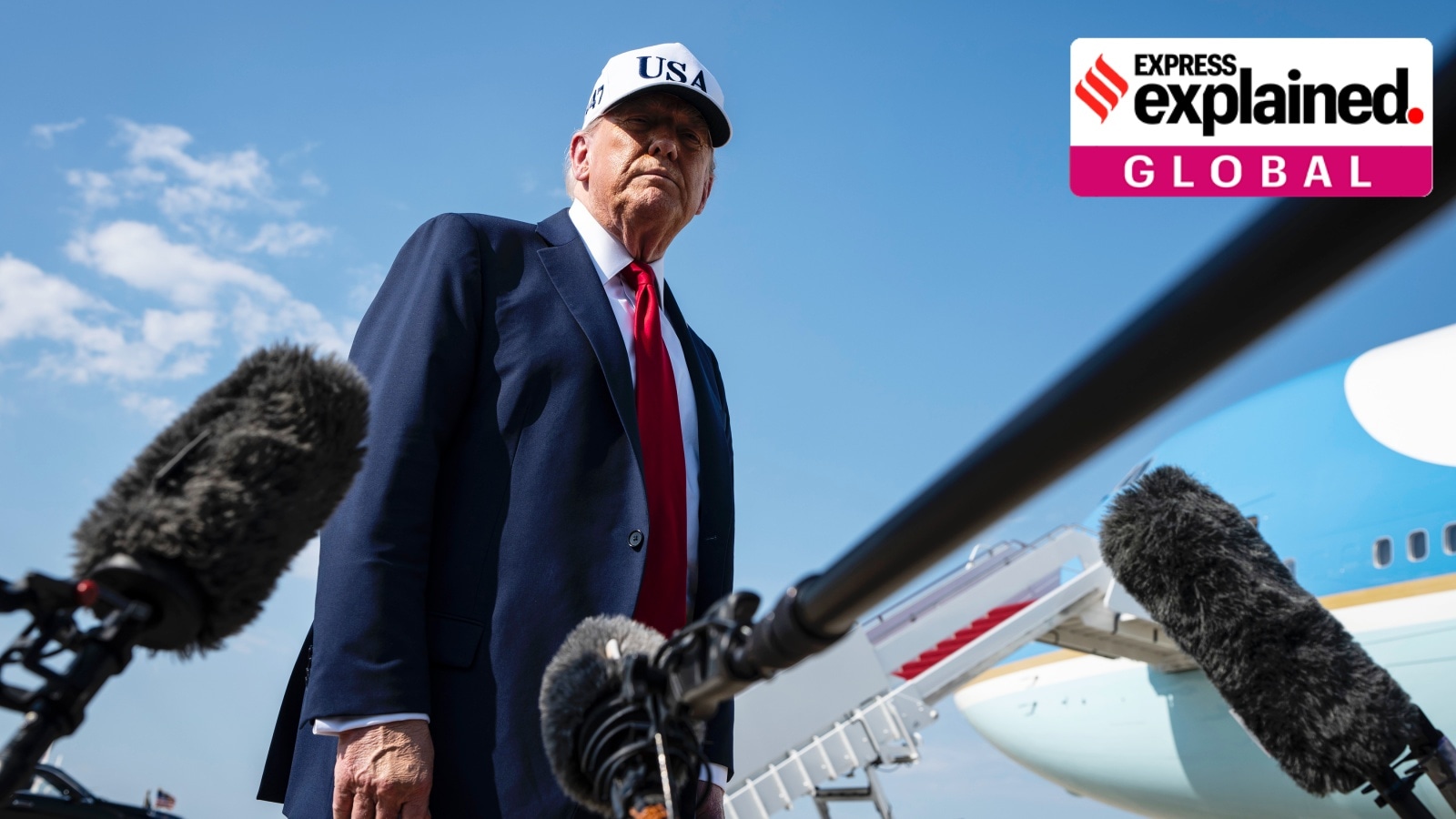How Trump’s lawsuit against Paramount could shape media coverage of the US President
Commentators have pointed out that after this settlement, mainstream media companies may be more hesitant to partner with or amplify ventures against Trump due to legal and reputational risks.
 Trump speaks to reporters as he boards Air Force One. (Haiyun Jiang/The New York Times)
Trump speaks to reporters as he boards Air Force One. (Haiyun Jiang/The New York Times)Written by Shaarvi Magazine
Paramount Global, the American mass media company that owns news broadcaster CBS, said on July 1 that it would pay $16 million to settle a lawsuit filed by US President Donald Trump that accused the station of distorting an interview to boost the Democratic Party ahead of the elections of 2024.
Paramount said the payout would be to Trump’s future presidential library, and not to the President “directly or indirectly”. “The settlement does not include a statement of apology or regret,” the company said.
Paramount also agreed to release transcripts of interviews with future US presidential candidates after their broadcasting, subject to redactions as required for legal or national security concerns.
The lawsuit: what happened?
The lawsuit, filed in October 2024, alleged that CBS deceptively edited an interview of then US Vice President and Democratic presidential candidate Kamala Harris on its ‘60 Minutes’ program with the intention of “tipping the scales in favour of the Democratic Party.”
In two versions of the interview aired by CBS, it appeared that Harris gave different answers on the Israel-Hamas war in response to correspondent Bill Whitaker’s question.
According to reports in the American media, she had given a long answer to a question about Israel’s Prime Minister Benjamin Netanyahu, and CBS had used about 20 seconds from it for a preview that it aired on ‘Face the Nation’, another CBS show, and a different, shorter, clip in the ‘60 Minutes’ show that was broadcast at prime time the following day.
Trump filed a $10 billion lawsuit in federal court in Texas, and increased the claim to $20 billion in February. He claimed that the company had violated the Texas Deceptive Trade Practices-Consumer Protection Act, which states that one can be sued for damages for false, deceptive, or misleading practices.
From litigation to settlement
CBS initially said the lawsuit was “completely without merit”, and asked the court for its dismissal. It refused to release the transcript, and defended itself on the grounds of the First Amendment, which gives news agencies the right to decide how they want to present information.
The company subsequently agreed to release the transcripts last year, which were proven to follow television news standards. Nevertheless, the case entered mediation in April.
Lawyers in a court filing last week asked the judge to delay all proceedings for a few days. In May, the company had offered $15 million, and a mediator proposed a $20 million settlement, a small fraction of Trump’s original $20 billion claim, it was reported last week.
Paramount said in its July 1 statement that the $16 million settlement included Trump’s legal fees.
Signal for the American media
Reporting by The New York Times and The Wall Street Journal said that the settlement has come as Paramount prepares for an $8.4 billion merger with Skydance Media, which requires approval from the US Federal Communications Commission.
Trump has filed multiple lawsuits against media houses, which critics read as being part of a larger campaign to attack media that don’t favour him. He has for many years denounced negative reporting about him as “fake news”, and has frequently accused media organisations and individual reporters of lying, both on social media and in person.
During the campaign last year, Trump had threatened to revoke CBS’s broadcasting licence if elected. The legal process that followed the filing of his lawsuit triggered turmoil at the company, and the executive producer of ‘60 Minutes’ resigned, reportedly in protest against curbs on his independent decision-making.
Senators Elizabeth Warren of Massachusetts and Bernie Sanders of Vermont had cautioned that any payment made by Paramount to Trump could be viewed as a bribe.
Commentators have pointed out that after this settlement, mainstream media companies may be more hesitant to partner with or amplify ventures against Trump due to legal and reputational risks. This could deepen the divide between conservative and liberal media ecosystems, further polarising the American media landscape.
The writer is a student and a summer intern at The Indian Express.
- 01
- 02
- 03
- 04
- 05






































